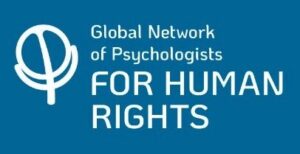

Editor’s Note
The GNPHR Bulletin focuses each month on a specific topic chosen in accordance with relevant UN events or UN commemorative days for that month. The May theme coincides with the INTERNATIONAL DAY OF LIVING TOGETHER IN PEACE, May 16, https://www.un.org/en/observances/living-in-peace-day
Living together in peace is all about accepting differences and having the ability to listen to, recognize, respect and appreciate others, as well as living in a peaceful and united way.
In a world in which we regularly witness tensions, acts of hatred, rejection of others and discrimination, the pursuit of peace and the will to live together harmoniously is more crucial than ever. UNESCO, and the United Nations as a whole, is striving on a daily-basis to provide people with the means to achieve peace, not only because peace is one of the major goals of the 2030 Agenda, but also because it is a precondition for sustainable development and for the common good.
GNPHR May Blog Column for International Day of Living in Peace:
Psychology and Human Rights – Addressing the biopsychosocial effects of prolonged human rights violations,
Wilson Lopez Lopez, Pontifical Javeriana University
Table of Contents
Special Section: International Day of Living in Peace, 2022
CONTENT AREAS: ARTICLES AND NEWS
- Children/Youth
- Climate Justice
- Covid19
- Crimes Against Humanity
- Disability Rights
- LGBTQ+
- Mental Health & Human Rights
- Migration, Refugees, Displacement, Statelessness
INTERNATIONAL HUMAN RIGHTS NEWS
PUBLICATIONS
UPCOMING EVENTS
CALLS FOR PAPERS
Bulletin End Notes
GNPHR NEWS
Webinar Series – Human Rights and Psychology
Next Webinar: May 16, 2022 – Flight and Human Rights. Speaker: Dr. Uli Wagner. Discussion about the rejection of refugees by receiving countries. 10:00 EDT and 16:00 CET. Register here
View all webinars in series here https://humanrightspsychology.org/webinarseries
Nominate for the *NEW* Human Rights Award
The International Council of Psychologists inaugurated a new Human Rights Award to recognize significant contributions by individual psychologists or organizations. Deadline 15 June 2022. URL for the AWARD: https://icpweb.org/awards/human-rights-award/
How can you participate in Global Network Activities?
https://humanrightspsychology.org/get-involved/
- Student/young person representation on the GNPHR steering group
- Share Your Experiences and Examples of human rights protection or violation
- Share your expertise and opinion
- Send articles/news/events
SPECIAL SECTION: International Day of Living in Peace

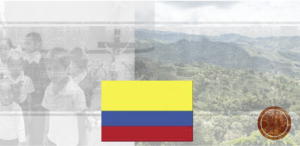 Read the May Blog
Read the May Blog
Peace and Reconciliation – Biopsychosocial Effects of Prolonged Human Rights Violations
Wilson Lopez-Lopez
Articles/Books Related to May 16 International Day of Living in Peace
The contribution of human rights to peacebuilding and sustaining peace. Review of the UN Peacebuilding architecture. UN OHCHR, 2020
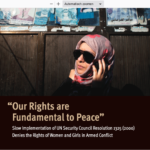 “OUR RIGHTS ARE FUNDAMENTAL TO PEACE”. Slow Implementation of UN Security Council Resolution 1325 (2000). Denies the Rights of Women and Girls in Armed Conflict. Human Rights Watch, 2015.
“OUR RIGHTS ARE FUNDAMENTAL TO PEACE”. Slow Implementation of UN Security Council Resolution 1325 (2000). Denies the Rights of Women and Girls in Armed Conflict. Human Rights Watch, 2015.
In 2011, women were at the forefront as the Arab Spring erupted in Libya, organizing and demanding their rights to have a voice in their country’s future. The ensuing civil war resulted in the former Libyan leader Muammar Gaddafi being toppled. In the transitional period following that armed conflict women organized as voters and candidates in preparation for elections, documented human rightsabuses, and worked to ensure any new constitution would enshrine women’s rights.
On Collective Responsibility and “Good” Russians. Preaching to Ukrainians that there are “good Russians out there who are also victims of Putin” is the same as saying “all lives matter”. Mariia Shynkarenko, Public Seminar, April 11, 2022.
“Imagine telling a Jew during WWII that “yes, Germany should be condemned for murdering Jews BUT there are also good Germans.” This is how I feel as a Ukrainian today, every time someone sympathizes with me, but also claims ‘there are good Russians out there.'”
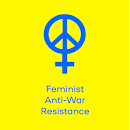 Feminist Resistance Against War; A Manifesto
Feminist Resistance Against War; A Manifesto
https://feministsagainstwar.org/
Feminist Anti-War Resistance (FAR or FAWR, Russian: Феминистское антивоенное сопротивление) is a group of Russian feminists founded in February 2022 to protest against the 2022 Russian invasion of Ukraine. In its first month, FAR became “one of Russia’s fastest-gowing anti-war campaigns”, attracting more than 26,000 followers on Telegram.[1]
“Feminism as a political force cannot be on the side of a war of aggression and military occupation,” their manifesto proclaims. The manifesto has been translated to almost thirty languages, including Tatar, Chuvash, and Udmurt. FAR calls on feminists in Russia and all over the world to join peaceful demonstrations, participate in anti-war campaigns, and spread the truth about events in Ukraine.
Transitioning to Peace, 2021, Springer
Editors: Wilson López López, Pontificia Universidad Javeriana de Bogotá, Bogota, Colombia; Laura K. Taylor, University College Dublin, Dublin, Ireland
From the publishers website:
This edited volume highlights how individuals, communities and nations are addressing a history of protracted violence in the transition to peace. This path is not linear or straightforward. The volume integrates research from peace processes and practices spanning over 20 countries. Four thematic areas unite these contributions: formal transitional justice mechanisms, social movements and collective action, community-driven processes, and future-oriented initiatives focused on children and youth. Across these chapters, the volume offers critical insight, new methods, conceptual models, and valuable cross-cultural research. The chapters in this volume balance locally-situated realties of peace, as well as cross-cutting similarities across contexts.
 Reconciliation after War: Historical Perspectives on Transitional Justice, 2021
Reconciliation after War: Historical Perspectives on Transitional Justice, 2021
Edited Rachel Kerr, Henry Redwood, James Gow
ISBN 9780367346553
Published January 6, 2021 by Routledge
Excerpt from publisher site: This edited volume examines a range of historical and contemporary episodes of reconciliation and anti-reconciliation in the aftermath of war.
Reconciliation is a concept that resists easy definition. At the same time, it is almost invariably invoked as a goal of post-conflict reconstruction, peacebuilding and transitional justice. This book examines the considerable ambiguity and controversy surrounding the term and, crucially, asks what has reconciliation entailed historically? What can we learn from past episodes of reconciliation and anti-reconciliation? Taken together, the chapters in this volume adopt an interdisciplinary approach, focused on the question of how reconciliation has been enacted, performed and understood in particular historical episodes, and how that might contribute to our understanding of the concept and its practice. Rather than seek a universal definition, the book focuses on what makes each case of reconciliation unique, and highlights the specificity of reconciliation in individual contexts.
This book will be of much interest to students of transitional justice, conflict resolution, human rights, history and International Relations.
Towards Justice and Conflict in Post-Reconciliation Countries
By Charles Mulinda Kabwete
Accord, 2018
CONTENT AREAS AND NEWS
Children/Youth
UN News: One Month of War Leaves More than Half of Ukraine’s Children Displaced
“A month since Russia invaded Ukraine, 4.3 million children – more than half of the country’s estimated 7.5 million child population – have been displaced, the UN Children’s Fund (UNICEF) said “
Human Rights Watch: Free the Data for Ukraine’s Children
“Children’s lives and learning are at stake. On February 25, the day after Russia’s invasion, Ukraine’s Education Ministry announced “extraordinary holidays” and closed all schools across the country, with no notice of reopening. The conflict instantly suspended the education of 5.7 million children between the ages of 3 and 17, many of whom had already missed out on months of education due to deadly attacks on schools in eastern Ukraine, or Covid-19 school closures. A million children have already fled the fighting in Ukraine, with many more scrambling for shelter within the country.”
Climate Justice
Voices of the Youth Climate Justice Movement. Emmanuel-Sathya Gray – blog reprinting article from The Community Psychologist, Spring 2022 Volume 55 Number 2.
“How do youth view and categorize success? How do they deal with the burnout and frustration that inevitably comes when those most interested in changing the status quo have the least power to fix it? We explore questions regarding youth climate justice successes and challenges, posing them within an intersectional framework.”
Ecocide Is Genocide: Decolonizing the Definition of Genocide. Lauren J. Eichler, Old Dominion University, Article from Genocide Studies Prevention
“In 1492, European explorers arrived in the Americas, bringing devastating changes to the land, ecosystems, and lives of the Indigenous peoples. Some of these changes were wrought unintentionally, such as the diseases, rats, and invasive plant species that came with the settlers.
Other changes, like the clear-cutting of forests to make way for farms and homesteads, the hunting of game animals to near extinction, and the removing of Indigenous peoples from their traditional lands, were more deliberate. For the Indigenous peoples, these changes had long term ramifications for the vitality of their cultures, the effects of which are still being experienced today. According to the worldviews of many Native American cultures, the destruction brought upon the land, water, and nonhuman beings of the Americas was an act of violence against their communities. I argue that this violence should be considered an act of genocide and that the study of genocide and our current responses to it are still largely colonial and anthropocentric.”
COVID-19
The impact of the COVID-19 pandemic and statelessness on Roma women and girls. Valerie Poppe, Roma and Travellers Team, Council of Europe, 17 March 2022
In November 2021, the 8th International Roma Women’s Conference took place in a hybrid format, organised by the Council of Europe’s Roma and Travellers Team in partnership with the Ministry of Labour and Social Policy of North Macedonia. [This blog]… explores the urgent issues that arose for Roma women and girls affected by statelessness during the pandemic and summarises recommendations made to member states, Roma and pro-Roma civil society.
Crimes against humanity
Ukraine: Apparent War Crimes in Russia-Controlled Areas. Report from Human Rights Watch
“(Warsaw) – Human Rights Watch has documented several cases of Russian military forces committing laws-of-war violations against civilians in occupied areas of the Chernihiv, Kharkiv, and Kyiv regions of Ukraine. These include a case of repeated rape; two cases of summary execution, one of six men, the other of one man; and other cases of unlawful violence and threats against civilians between February 27 and March 14, 2022. Soldiers were also implicated in looting civilian property, including food, clothing, and firewood. Those who carried out these abuses are responsible for war crimes.”
Des Ukrainiennes victimes de viol se heurtent à la loi anti-IVG polonaise. Lucie Beaugé, Libération, 25 Avril 2022. (Droit des femmes)
Une plainte a été déposée pour agression sexuelle au sein du collectif, qui promeut l’égalité des hommes et des femmes dans le cinéma. L’administratrice mise en cause conteste les faits et s’est mise en retrait. Une enquête a été ouverte.
En Pologne, la loi empêche les réfugiées ukrainiennes d’avorter quand nombre d’entre elles ont été violées par des soldats russes ou des criminels locaux.
What is R2P? Responsibility to Protect
The Responsibility to Protect populations from genocide, war crimes, crimes against humanity and ethnic cleansing has emerged as an important global principle since the adoption of the UN World Summit Outcome Document in 2005.
The Responsibility to Protect – known as R2P – is an international norm that seeks to ensure that the international community never again fails to halt the mass atrocity crimes of genocide, war crimes, ethnic cleansing and crimes against humanity. The concept emerged in response to the failure of the international community to adequately respond to mass atrocities committed in Rwanda and the former Yugoslavia during the 1990s. The International Committee on Intervention and State Sovereignty developed the concept of R2P during 2001.
Disability Rights
Humanity should get the best from AI, not the worst – UN disability rights expert. 9 May 2022
Artificial intelligence has fundamentally altered the terms of existence for human beings, said UN Special Rapporteur on the rights of persons with disabilities Gerard Quinn.
“New technologies can be of enormous benefit to persons with disabilities and drive the search for inclusive equality across a broad range of fields such as employment, education and independent living,” he said. “However, there are many well-known discriminatory impacts.”
Quinn made his statement during a presentation of his report to the Human Rights Council. In his report, Quinn defined artificial intelligence, or AI, as machines made to work “in the same or a similar way to humans, only faster, better and more reliably and, theoretically, without human bias.”
LGBTQI+, Gender Rights
Queering global health: an urgent call for LGBT+ affirmative practices. Suntosh R Pillay, Joachim M Ntetmen, Juan A Nel, The Lancet, February 14, 2022. Open Access.
This Viewpoint was submitted in response to the call for papers on the theme “What is wrong with global health?”. We answer the question simply: global health under-represents the experiences of LGBT+ people. Queer contexts are missing from the pages of this journal—a strange exclusion given the journal’s commitment to diversity and inclusion of marginalised voices. Indeed, there is a general neglect within global health scholarship of the intersection between health inequities and LGBT+ populations in low-income and middle-income countries in Africa. This Viewpoint discusses the utility of LGBT-affirmative scholarship developed in South Africa, and its use and application in Nigeria and Cameroon.
Inadequate Kenyan Police Response to Brutal Killing of Non-Binary Lesbian
Murder of Sheila Adhiambo Lumumba Sparks #JusticeForSheila. Erin Kilbride, April 29, 2022.
Sheila Adhiambo Lumumba, a 25-year-old Kenyan non-binary lesbian, was found murdered and naked in their bedroom in Karatina, north of Nairobi on April 17. A postmortem report conducted the next day at Karatina Sub-County Hospital and seen by Human Rights Watch revealed that Lumumba was sexually assaulted, hit on the head with a blunt object, and stabbed in the chest, face, neck, and eyes. Police have yet to properly investigate.
Mental Health and Human Rights
WHO QualityRights e-training to advance mental health, eliminate stigma and promote community inclusion. Dr Michelle Funk, WHO. Link to access the WHO QualityRights e-training: https://www.who.int/teams/mental-health-and-substance-use/policy-law-rights/qr-e-training
View the WHO launch event at the following link: https://www.youtube.com/watch?v=Y-saZ0ZtTS4
Disrupting Global Health: From Allyship To Collective Liberation. Madhukar Pai, Forbes, March 15, 2022. Opinion piece: “Global health is a field that was born out of colonialism and white supremacy. Even today, it is neither diverse nor truly global. Every aspect of global health is dominated by individuals and institutions in high-income countries (HIC). This includes funding, authorship of publications, leadership of agencies, composition of boards, editorial positions, awards, and even participation in conferences. So, if global health has to be reimagined, people that typically hold power and privilege must master the art of allyship, where they see their primary role as allies or accomplices rather than leaders.”
Commitment and innovation on the road to people-centred PHC financing
“The Lancet Global Health Commission on financing primary health care (PHC) recognises that adequately financing PHC will be crucial to meet the target of SDG 3—ie, to ensure healthy lives and promote wellbeing for all at all ages by 2030. However, we still remain far off that goal, and the COVID-19 pandemic has set us back even further, badly disrupting many essential services that were not directly related to COVID-19, particularly in the realm of PHC such as mental health and maternal and child health. And with an uneven global economic recovery, many countries’ health budgets will face a period of austerity.”
Migration, Refugees, Displacement, Statelessness
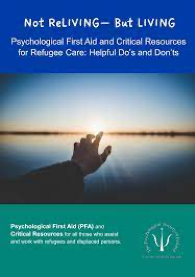 Not ReLIVING-But LIVING. Psychological First Aid and Critical Resources for Refugee Care:
Not ReLIVING-But LIVING. Psychological First Aid and Critical Resources for Refugee Care:
Helpful Do’s and Don’ts. Psychological First Aid (PFA) and Critical Resources for all those who assist and work with refugees and displaced persons. Meg Ryan, Elaine Martin, Elaine Rogers, Michelle B. Cowley-Cunningham. PSI, The psychological Society of Ireland, April 2022
SELF-HELP PLUS (SH+). A group-based stress management course for adults, Toolkit. WHO, 23 September 2021.
Self-Help Plus (SH+) is WHO’s 5-session stress management course for large groups of up to 30 people. It is delivered by supervised, non-specialist facilitators who complete a short training course and use pre-recorded audio and an illustrated guide (Doing what matters in times of stress) to teach stress management skills. The course is suitable for adults who experiences stress, wherever they live and whatever their circumstances. It has been shown to reduce psychological distress and prevent the onset of mental disorders. The format of SH+ makes it well-suited for use alongside other mental health interventions, as a first step in a stepped care programme, or as a community intervention delivered alongside broader community programming.
Assisting stateless people trapped in Ukraine: report from the ground. Blog by Kseniia Karahiaur and Oleksandra Aivazian, R2P Project on Legal Assistance to Stateless Population, ENS, 24 March 2022. The staff of R2P’s statelessness project have spent the last few weeks trying to reach their approximately 700 beneficiaries to assess their situation and offer support in the wake of the Russian invasion. This blog provides a situation update from the ground on issues faced by stateless people trapped by the conflict in Ukraine.
Poland/Belarus: New evidence of abuses highlights ‘hypocrisy’ of unequal treatment of asylum-seekers. Amnesty International, April 11, 2022.
- Authorities violating rights of asylum-seekers, including strip searches and other degrading treatment, in overcrowded detention centres
- Some people forcibly sedated during return
- Pushbacks and arbitrary detention in stark contrast with welcome shown to those fleeing Ukraine
- Spokespeople available
The Polish authorities have arbitrarily detained nearly two thousand asylum-seekers who crossed into the country from Belarus in 2021, and subjected many of them to abuse, including strip searches in unsanitary, overcrowded facilities, and in some cases even to forcible sedation and tasering,
Additionally, after a hiatus during winter, more asylum-seekers are now trying to enter Poland from Belarus, where they are unable to access further funds due to international sanctions and risk harassment or apprehension by Belarusian police due their irregular immigration status. At the Polish border they face razor wire fences and repeated pushbacks by border guards sometimes up to 20-30 times.
INTERNATIONAL HUMAN RIGHTS NEWS
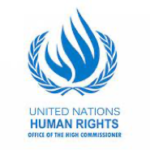 UN OFFICE HIGH COMMISSIONER FOR HUMAN RIGHTS
UN OFFICE HIGH COMMISSIONER FOR HUMAN RIGHTS
Ukraine: Behind the numbers.
Human rights officers share how they obtain accurate information on civilian casualties and other human rights violations. 26 April 2022.
Collecting accounts of victims and witnesses is just one facet of the monitoring work undertaken by HRMMU. But it is a vital piece – providing a trusted source of verified information on the human rights violations, including on civilian casualties that the Mission has been recording in Ukraine since 2014. To do this, human rights officers consult a broad range of sources.
When possible, they will visit the place where an incident took place and interview victims and witnesses. If it is not possible to visit the location of an incident, the Mission relies on an extensive network of trusted contacts, and partners, gleaned over the eight years it has worked in Ukraine. Also, human rights officers travel to different locations to visit IDP centres, like Nataliia did in Uzhhorod.
HUMAN RIGHTS WATCH
France: Afghan Evacuees Need Mental Health Support French Authorities Should Provide More Assistance. March 24, 2022
“Afghans evacuated to France faced severely traumatic events and many continue to struggle with their mental health,” said Jonas Bull, assistant disability rights researcher at Human Rights Watch. “As they navigate a new environment and language while managing feelings of isolation and trauma, France should provide everyone with quality mental health support.”
With three million people fleeing Ukraine in the first three weeks following Russia’s invasion, the situation of Afghans in France provides important lessons for receiving countries on how they can make mental health support a priority for asylum seekers.
Costa Rica’s Mental Health Bill a Step Back for Human Rights. Carlos Ríos Espinosa, May 5, 2022.
Last week, Costa Rica’s Legislative Assembly passed a troublesome bill to create a National Act on Mental Health. The bill follows an outdated biomedical model to treat people who might be experiencing a mental health crisis or have mental health conditions, also known as
The bill is modelled on an old mental health treatment paradigm based on medication and inpatient non-consensual treatment that has been called into question by different stakeholders, including the World Health Organization (WHO) and United Nations treaty bodies like the Committee on the Rights of Persons with Disabilities.
PUBLICATIONS
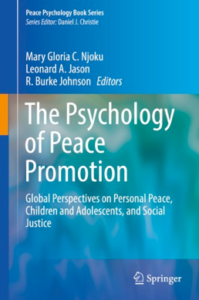 The Psychology of Peace Promotion
The Psychology of Peace Promotion
Global Perspectives on Personal Peace, Children and Adolescents, and Social Justice. Mary Gloria C. Njoku, Leonard A. Jason, R. Burke Johnson (Eds.). Springer 2019.
Represents a wide range of cultural contexts, including authors and subject matters from under-represented areas, such as Africa and South America. Provides an overview that will inform individuals on how to create and promote peace around the world. Focuses on the active promotion of peace, rather than a passive reaction to violence. Pict_3
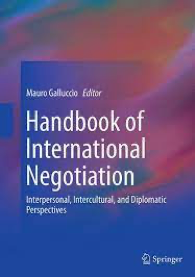 Handbook of International Negotiation, Interpersonal, Intercultural, and Diplomatic Perspectives. Mauro Galluccio, Editor, Springer International Publishing Switzerland, 2015.
Handbook of International Negotiation, Interpersonal, Intercultural, and Diplomatic Perspectives. Mauro Galluccio, Editor, Springer International Publishing Switzerland, 2015.
Note – Chapter 20: Cognitive Behavioral Therapy Inspiring Values in the Planning and Management of Lebanon National Conflicts Resolution. By GNPHR Steering Committee member Aimée Karam.
From PsycInfo Review: “This cross-disciplinary handbook offers leading-edge concepts and scientifically based strategies for fostering nonviolent alternatives to violent conflict. The chapters present in-depth discussions of such topics as the role of emotion in negotiation, the value of truth and reconciliation commissions, and strategies for resisting “war fever”. In addition, they include case studies of conflict resolution in several hot spots around the globe. Though most of the chapters focus on international negotiation, the experts who wrote them range in discipline from international relations and diplomacy to cognitive psychology and neurobiology. Many of the chapters present practical advice and tools of analysis that move beyond such familiar concepts as listening skills and cultural competence, presenting ideas rarely seen in the peace and negotiation literature. As the stakes in global conflict continue to escalate, this book should be vital reading for an increasing array of scholars and practitioners, including specialists in international negotiations, mediation, conflict management, peace studies, and decision makers who have to deal with international conflict. (PsycInfo Database Record (c) 2020 APA, all rights reserved)”
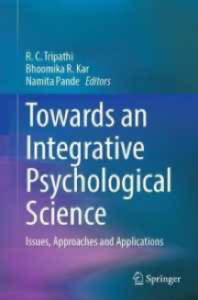 Towards an Integrative Psychological Science : Issues, Approaches and Applications. R.C. Tripathi, Bhoomika R. Kar, Namita Pande, Springer, 2022.
Towards an Integrative Psychological Science : Issues, Approaches and Applications. R.C. Tripathi, Bhoomika R. Kar, Namita Pande, Springer, 2022.
This edited volume examines the new ways of conceptualizing Psychology as an integrative science to understand human problems at the individual, group, societal, and national levels. It focuses on the need for Psychology to move away from its present reductionist perspective to an integrative psychological science perspective. The volume is organized into three main sections: The first discusses the convergence of qualitative and quantitative methodological approaches in Psychology. The second part highlights the importance of social and personal wellness. The third focuses on studying human behaviour in the context of cultural variations and the impact of cultural context on psychological processes. The book includes contributions from leading scholars in psychology in India whose reference to practical, social and political issues of contemporary interest makes the volume stand out. This book serves as a resource to initiate the dialogue about the need, issues, levels, and integration methods in Psychology, which can be scientifically tested and theoretically explained. The comprehensive and authoritative volume is of interest to researchers and scholars in cognitive psychology, clinical psychology, organizational psychology, social psychology and cross-cultural psychology.
Upcoming Events
28th Annual BACP Research Conference: Striving for equality, diversity and inclusion in research, practice and policy
The hybrid conference, co-hosted by Abertay University, will take place in person in Dundee and online on 19 and 20 May 2022. Recorded presentations will be available to view on-demand until August 2022.
In person: May 19, 2022
Online: May 20, 2022
ICP2022 – December 9-11.2022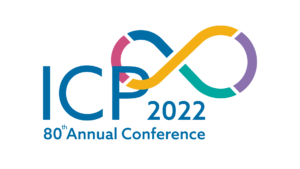
Dear Colleagues,
We invite you to submit proposals for short talks or posters for the International Council of Psychologists 2022 Annual Conference (December 9-11). Proposals are due by July 1st. You can find more information here: https://icpweb.org/icp-annual-conference/icp2022/
Come join together to explore Human Rights, Dignity & Justice: Strategies for Sustainability with talks, discussion and networking.
Calls for Papers
Special Thematic Issue on Decolonizing Psychology in Developing Societies of Psychology and Developing Societies.
This thematic issue of PDS will focus on investigating and uncovering the hidden and known influences of colonization and colonial power relations in the generation of psychological knowledge and its applications, particularly, in developing societies. Psychology has, generally, ignored the influence of power relations and contexts, because its main goal has been to discover universal truths of human behaviour. Its dominant view is based on data drawn from people who are mainly male, white and middle class. This kind of emphasis has influenced the epistemological framework and methodology that Psychologists use to understand humans and their behaviour in different economic, social and environmental contexts.
The question that is posed before the contributors to this theme is whether current Psychology, which has mainly come out of Europe and North America, can really help in repairing the ill-effects of past and present (un)equal power relationships that resulted from colonization or that can be done only by a decolonized Psychology. A decolonized Psychology is expected to enhance our understanding about how colonization has influenced minds and human behaviour in developing societies. Such knowledge will liberate and make minds free.
The papers in this thematic issue will examine how psychology can repair and restore the effects of past and present (un)equal power relationships that find reflection in people’s minds. They will look at decolonizing Psychology with the larger objective of improving relations between people and, also between people and environment. They will examine what needs to be decolonised and the process and consequences of decolonizing Psychology in developing societies. As part of the Journal’s policy, preference will be given to papers that draw upon the cultural, social and historical contexts of such societies.
The special thematic issue of Psychology and Developing Societies will be published in March 2023. Authors intending to submit their manuscripts for consideration may submit their abstracts of about 250-300 words by August 30, 2022 and if their abstract is accepted, their full papers by October 15, 2022. Please read the Manuscript Submission guidelines on the journal’s website, and then visit https://peerreview.sagepub.com/pds to login and submit your article online. Thereafter, email all the documents to Namita Pande, Editor-in-charge, PDS at pdsedit.si@gmail.com, or to the guest editor Polli Hagenaars, The Netherlands, polli.hagenaars@gmail.com
CONTACTS: Published by the Global Network of Psychologists for Human Rights – www.humanrightspsychology.org
Disclaimer: The website of the Global Network of Psychologists for Human Rights (GNPHR) contains articles, events and news about the domain where psychology and human rights intersect. The information presented in this Bulletin, does not imply that the GNPHR shares the views and beliefs in the articles.
- @GNPHR1
- How to get involved – read how you can contribute to the global network
- Consider contributing a Blog/Commentary
- News and Bulletins from the GNPHR – Subscribe to GNPHR
- Email addresses:
Ways to Participate in Global Network Activities
- Student/young person representation on the GNPHR Steering Committee
Are you a student or young person (under 35 years of age) interested in joining the GNPHR Steering Committee? The GNPHR invites applications. Role description: The terms of reference broadly define the roles of all members of the steering group. Individual steering committee member tasks include : Each member will take responsibility for one of the following: (a) A specific content area or group of areas; (b) A specific project (e.g. survey of human rights reporting mechanisms; survey of educational programs in psychology/human rights, etc); (c) A specific function: for example, organizing a newsletter; soliciting commentary or newsletter blogs; seeking grant possibilities; outreach to general human rights organizations; outreach to psychology organizations or (d) Consultation: Working in collaboration with other organisations where there is a specific issue. In addition, from time-to-time, short-term subgroups may work on specific projects. In addition, for the student member, there would be a specific remit to liaise with other organisations that are focussed on younger people, psychology and human rights. Click here if you are interested in being nominated. - Share Your Experiences and Examples
One of the best ways to illustrate the intersection of psychology and human rights is through example. We are looking for examples of your encounters with human rights issues in your professional life. You might describe a time when you protected (or failed to protect) human rights, or advocated for what you saw as a human rights issue. The events might be in your clinical, research, academic, applied, or volunteer work. Please send your narrative / story (500-1000 words) to Marlena Plavšić (marlena_plavsic@hotmail.com). We will compile these for publication in the GNPHR Bulletin and on the website. Please also indicate if you would like your stories to remain anonymous. - Share your Expertise and Opinions
We invite you to contribute a blog or opinion piece on general human rights issues; human rights education or strategies for raising the profile of human rights within psychology or your professional life. Students are welcome to contribute, including on student needs for learning about and addressing human rights. Please contact the GNPHR Blog editor (blogeditor@humanrightspsychology.org) with ideas for the article you would like to write! - Send articles/news/events
If you come across a human rights article or news, or know of an upcoming hunman rights event, please send for publication in the Bulletin. Send to the Bulletin editor Polli Hagenaars (polli.hagenaars@gmail.com).

